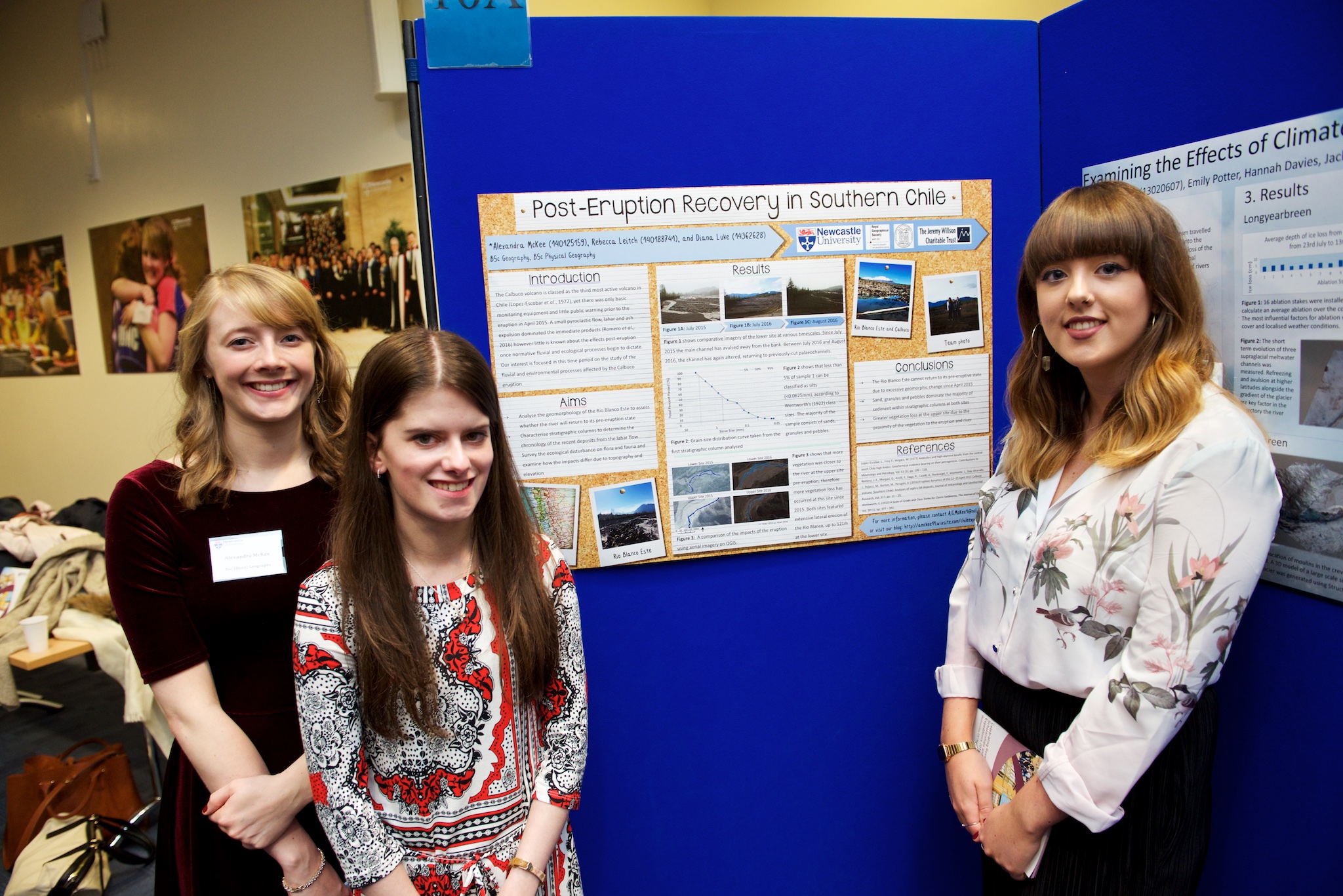2016 Participants
 Alexandra McKee, Rebecca Leitch and Diana Luke
Alexandra McKee, Rebecca Leitch and Diana Luke
- Bsc (Hons) Geography
- Study of fluvial and environmental processes affected by the 2015 Calbuco volcano eruption, Chile.
Combined, our overall aim is to study the fluvial and ecological effects of the Calbuco eruption, however individually this involved investigating fluvial geomorphology, lahar characterisation and ecological disturbance. Choosing two sites along the Río Blanco Este that were highly affected by volcanic processes and materials, we collected primary data to compare with secondary information to create a full picture of what happened in April 2015 and what is still happening today.
Preliminary findings of the river geomorphology indicate that the upper site was impacted immediately after the eruption, however the lower site responded several months ensuing. This is most likely due to the transportation of loose, unconsolidated material, which took a longer period of time to reach the second site than the first.
Initial logging of the stratigraphic columns revealed at least 4 or more units at the upper site and at least 5 or more units at the lower site. The majority of the stratigraphy columns exhibited poor sorting, with a range of clast sizes from boulders (>4096 mm) to granules (<4mm). The samples of finer grained matrix collected from each column encompassed clast sizes ranging from very fine sand (>0.06mm) to pebbles (<20mm).
Whilst the lower site features trees nearer to the river edge, at the upper site the first signs of living vegetation are located 100m away from the current river position. Overall, the impact of the volcanic disturbance on vegetation related mainly to the lahar and ash fall, which impacted areas more extensively than the lahar flow. The ash permitted some vegetation to exist, whereas the areas in direct contact with the lahar flow show no vegetation.
Funding sources: Newcastle Expeditions Committee, University Development Trust, the Henderson Fund, Royal Geographical Society (with IBG), Gilchrist Educational Trust and the Jeremy Wilson Charitable Trust.
Project Supervisors: Prof Andy Russell & Dr Stuart Dunning
